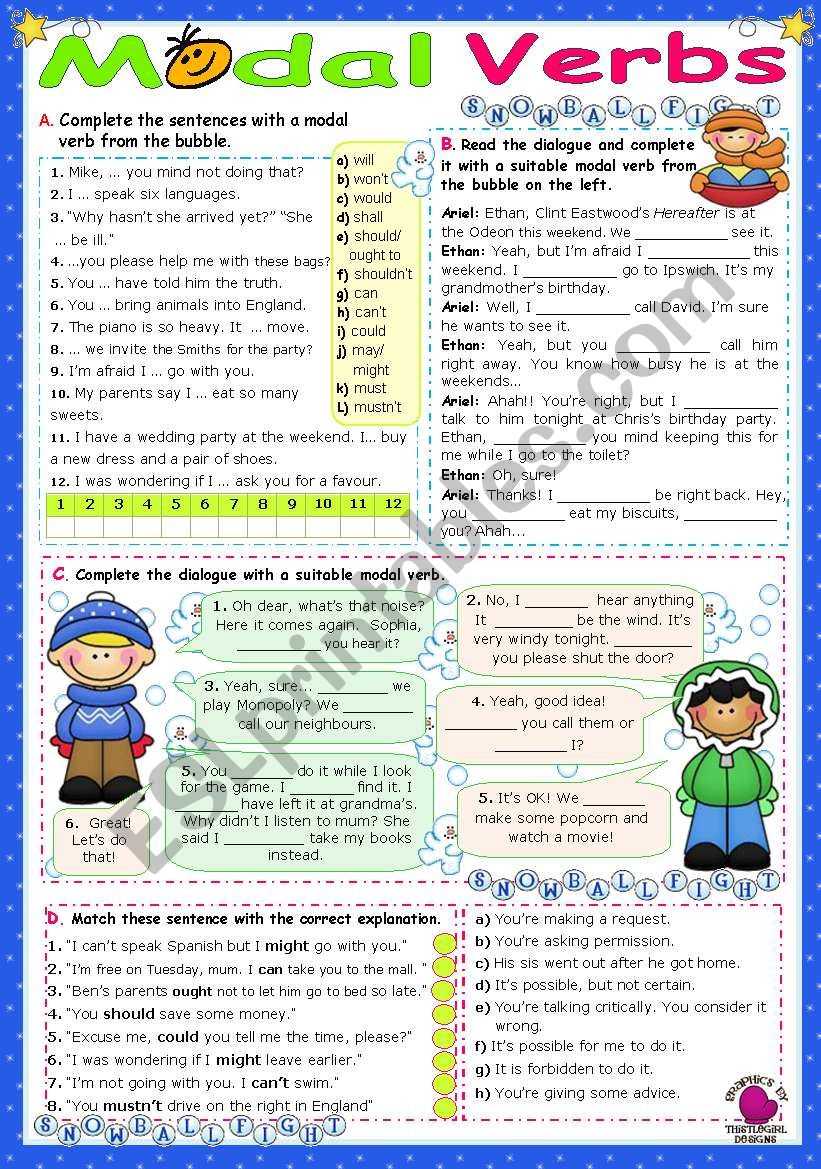

Or is there any rule that the tense forms of two different modal verbs be not changed in order for them to stick to the same tense form even when they both are used in the same sentence? Whereas, the other sentences have got the modal verbs used in the present and the past forms.Ĭan we use two different modal verbs in two different tense forms as the modal verbs used in the above sentences? If so, pls explain what do the modal verbs in the last three sentences above mean in terms of the uses on which they have been used in those sentences? I could guarantee you that your son would score more this time.Īs far the first sentence, it's got can and will and so it can come across what they both mean. I could guarantee you that your son will score more this time.Ĥ. I can guarantee you that your son would score more this time.ģ. I can guarantee you that your son will score more this time.Ģ. Obligations 1īook traversal links for Suggestions and obligationsġ. You couldn't make any noise in the library. We use had to (positive) and couldn't (negative) if we are talking about the past: You mustn't make any noise in the library. We use mustn't for prohibitions – to say that it is necessary to not do something: You can wear what you like, but you must look neat and tidy. We use must or need to to say that it is necessary to do something:Įveryone needs to bring something to eat. ReorderingHorizontal_MTYzNjM= Suggestions 2 We also use could to make positive suggestions:ĭan would help you if you asked him. We use should and shouldn't to make suggestions and give advice:


 0 kommentar(er)
0 kommentar(er)
